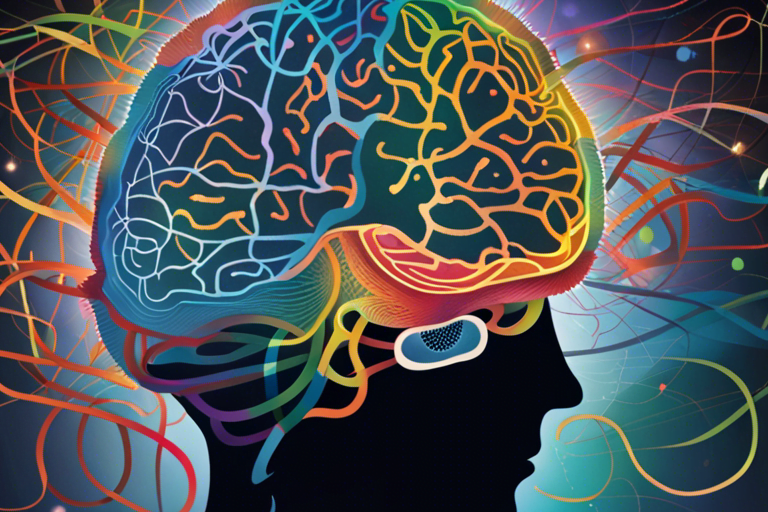Introduction: What is Psychology?
So, you’re curious about psychology? You’ve probably heard the word thrown around, but what exactly is it? Well, psychology is the scientific study of the mind and behavior. It delves into why we think and feel the way we do, and it aims to uncover the hidden workings of the human mind. It’s all about understanding what makes us tick and using that knowledge to improve our lives.
Early Thinkers in Psychology
The field of psychology has a rich history that dates back centuries. Early thinkers paved the way for the development of this fascinating discipline. One of the first notable figures was Wilhelm Wundt, a German psychologist who is often referred to as the “Father of Psychology.” In the late 19th century, he established the first psychological laboratory and developed a technique known as introspection, where individuals were asked to reflect on their own thoughts and sensations.
Another influential figure in the early days of psychology was William James, an American philosopher and psychologist. James contributed to the development of functionalism, a school of thought that focused on the adaptive functions of behavior. He believed that the mind evolved to help us navigate the world and adapt to new situations.

Big Questions in Psychology
Psychologists are always seeking answers to some big questions. These questions delve into the fundamental nature of human existence. For example, what is consciousness? How do our minds perceive and interpret the world around us? Do humans have free will, or are our actions determined by external forces? Through research and experimentation, psychologists strive to uncover the answers to these intriguing queries.
Sigmund Freud
One name you can’t escape when talking about psychology is Sigmund Freud. Freud, an Austrian neurologist, developed a revolutionary theory of personality and psychoanalysis. He believed that our unconscious desires and childhood experiences shape our behavior and mental well-being. Freud introduced concepts such as the id, ego, and superego, which represent different aspects of our personality. He also popularized the idea of dream analysis and the importance of the unconscious mind in shaping our thoughts and actions.

Disciplines of Psychology
Psychology is a vast field, encompassing various disciplines. Let’s explore a few of the major branches of psychology.
Clinical Psychology
Clinical psychology focuses on diagnosing and treating mental illness. These professionals work with individuals who are struggling with conditions such as depression, anxiety, or schizophrenia. They use various therapeutic techniques to help their clients improve their mental well-being and cope with life’s challenges.
Developmental Psychology
Developmental psychology is all about understanding how humans grow and change over their lifespan. It examines key milestones and processes, such as cognitive development, social development, and emotional development. Developmental psychologists work with individuals of all ages, from infants to the elderly, to understand how different factors influence our development.
Cognitive Psychology
Cognitive psychology explores the mental processes and structures that underlie our thoughts and behaviors. It investigates topics such as attention, memory, decision-making, and problem-solving. Cognitive psychologists aim to understand how our mind processes information and how we perceive and interpret the world around us.
Structuralism
Structuralism was one of the earliest schools of thought in psychology. It was pioneered by Edward B. Titchener, a student of Wilhelm Wundt. Structuralists aimed to analyze the basic elements of conscious experience by breaking it down into its component parts. They believed that by studying sensations, feelings, and thoughts, they could understand the underlying structure of the mind.
Functionalism
Functionalism emerged as a response to structuralism. Instead of focusing on the structure of the mind, functionalists were interested in how the mind works and how it helps us adapt to our environment. They believed that mental processes serve a purpose and have a function in helping us survive and thrive. Think of it as studying the mind as a useful tool rather than dissecting its individual parts.
Psychoanalysis
We can’t talk about psychology without diving deeper into psychoanalysis. As mentioned earlier, Freud is the key figure associated with this approach. Psychoanalysis seeks to uncover the unconscious factors that influence our thoughts and behaviors. Through therapy sessions, individuals can explore their hidden desires, fears, and conflicts. Freud’s theories and techniques have had a profound influence on psychology and continue to be debated and expanded upon today.
Freud’s Death & Legacy
Freud’s impact on the field of psychology was tremendous, but his influence extended beyond his death in 1939. His theories sparked a wave of discussions and debates that shaped the course of psychology for years to come. While some aspects of his work have been criticized and even disproven, Freud’s legacy remains undeniable. His ideas challenged the conventional thinking of his time and opened up new avenues for understanding the human mind.
Conclusion
Psychology is a captivating field that seeks to unravel the mysteries of the human mind. Early thinkers like Wundt and James paved the way for the development of this fascinating discipline. From big questions about consciousness and free will to the specific branches of clinical, developmental, and cognitive psychology, there’s no shortage of topics to explore. Whether you’re intrigued by Freud’s psychoanalysis or drawn to the principles of structuralism and functionalism, psychology offers a wealth of knowledge and insights into what makes us human. So, keep exploring, questioning, and delving into the depths of psychology!

